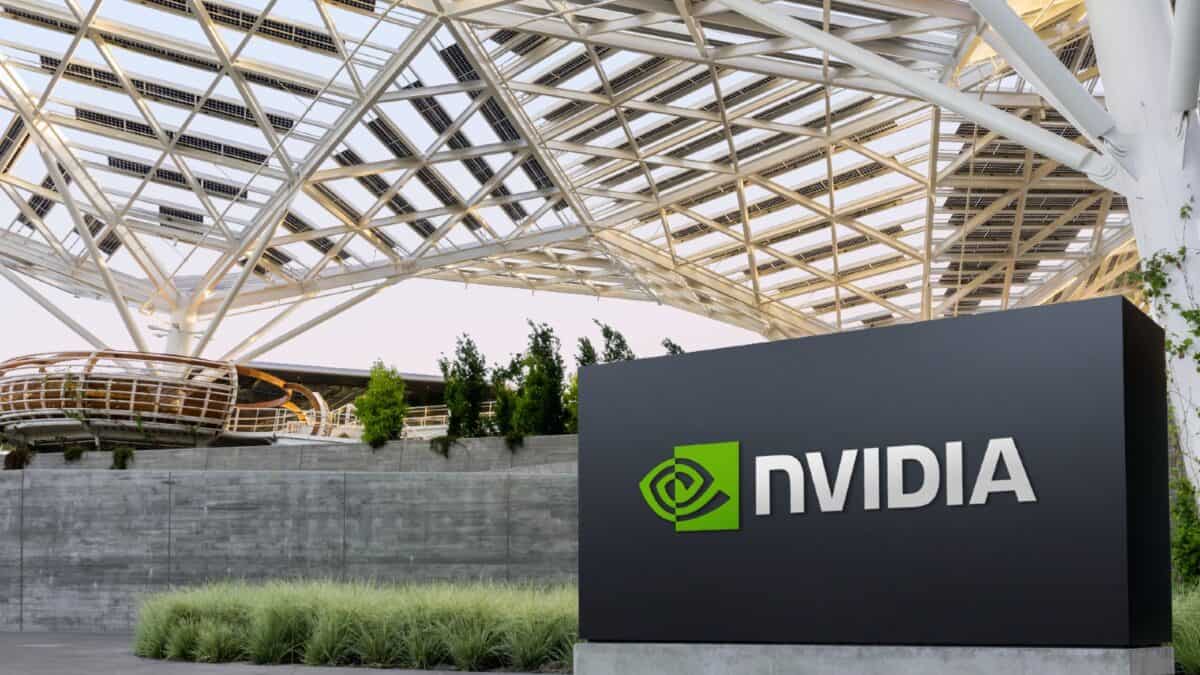When you Google search Nvidia (NASDAQ:NVDA) today, its website comes up with the title “NVIDIA: World Leader in Artificial Intelligence Computing”. I think this quite accurately captures the value that the market sees in Nvidia stock right now.
That being said, as a potential investor, I always want to make sure I don’t take on too much risk. With its shares growing in price so much in such a short time, I’m a little apprehensive about investing in it because of the valuation.
What’s so great about Nvidia?
Many astute investors believe Nvidia was in the right place at the right time. It invested early in its platform, called CUDA, which it initially designed for improved image displays. However, the pivotal moment came when graphics processing units, which CUDA helps in optimising, started to be adopted for deep learning. Suddenly, Nvidia was at the forefront of the AI world.
Should you invest £1,000 in Nvidia right now?
When investing expert Mark Rogers has a stock tip, it can pay to listen. After all, the flagship Motley Fool Share Advisor newsletter he has run for nearly a decade has provided thousands of paying members with top stock recommendations from the UK and US markets. And right now, Mark thinks there are 6 standout stocks that investors should consider buying. Want to see if Nvidia made the list?
Most people have acknowledged that AI is going to change the way the world works. I believe that the economy is going to become greatly more productive, and goods and services should become less costly. With Nvidia right at the forefront of these economic shifts, investors are potentially positioned very well.
Nvidia CEO Jensen Huang recently stated, “This year, every industry will become a technology industry”. His vision is to turn Nvidia into the world’s most elite AI foundry. It could be similar to what Taiwan Semiconductor Manufacturing is doing with advanced chip production, but for AI systems.
Could the stock climb higher?
The expectation, according to the consensus among analysts, is that this year is going to deliver the highest growth in terms of Nvidia’s future revenue and earnings. Then, the growth should begin to slow down a bit while still nicely increasing from 2025 to 2027.
The valuation doesn’t look too unreasonable to me. The price-to-earnings ratio of 76 is extraordinary, but I truly believe Nvidia is an extraordinary company.
We have to remember that some elite technology companies trade at much higher valuations than other companies, sometimes for decades. Just look at Amazon, which has had a price-to-earnings ratio of 115 as a 10-year median.
I think Nvidia has positioned itself to be as enduring a company as Amazon. One of the reasons I believe this is that after watching many of CEO Jensen Huang’s talks, he seems incredibly astute, hard working, and willing to adapt to evolving opportunities. I believe good executive management is integral to strong, long-term share performance.
How big are the risks, though?
One of the things I don’t like about investing in companies with a high price-to-earnings ratio is that the shares are very susceptible to changes in investor sentiment. If the company fails to meet its quarterly or annual results expectations, the price could fall more significantly than usual as a result. That’s because a very high price-to-earnings ratio means investors are expecting great revenue and profit growth to continue. If the growth slows down, investors can want to sell their shares with equal enthusiasm as when they bought them.
So, I can see the share price having some significant volatility ahead of it over the next decade. But that isn’t unusual for technology companies. I think this is a great business, and I’ll likely be an Nvidia shareholder soon.








